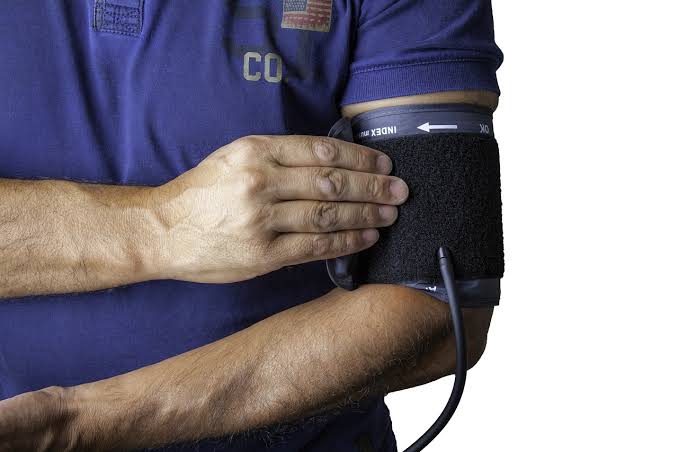Overview
Blood pressure is the force of blood pushing against the wall of arteries as the heart pumps around the body. It is measured with two numbers: Systolic(when the heart beats) and Diastolic(when the heart rests between beats). A normal blood pressure value is typically around 120/80 mmHg. Monitoring and managing blood pressure is important because both high and low blood pressure can lead to severe health problems including heart disorders, stroke, and kidney damage.
What is blood pressure?
Blood pressure is the force exerted by circulating blood against the walls of blood vessels, particularly the arteries, as the heart pumps it around the body. It is an important measurement of cardiovascular health and reflects how hard the heart is working to circulate blood.
Blood pressure is expressed as two numbers:
- Systolic pressure: The higher number, which measures the pressure when the heart beats and pumps blood into the arteries.
- Diastolic pressure: The lower number, which measures the pressure when the heart is at rest between beats.
Blood pressure is an essential factor in determining overall heart health. If blood pressure is too high (hypertension) or too low (hypotension), it can lead to health issues such as heart disease, stroke, and kidney damage. Regular monitoring and management are crucial for maintaining good health.
Why blood pressure is important?
Blood pressure is important because it indicates the health of your heart and blood vessels. Healthy blood pressure ensures that blood circulates properly, delivering oxygen and nutrients to vital organs. High blood pressure (hypertension) can damage the heart, brain, kidneys, and eyes, increasing the risk of heart disease, stroke, kidney failure, and vision loss. Low blood pressure (hypotension) can lead to dizziness, fainting, and poor organ function. Maintaining normal blood pressure is essential for overall health and well-being.
Categories of Blood Pressure
Blood pressure is categorized into the following ranges:
- Normal: Less than 120/80 mmHg
- Elevated: Systolic 120-129 mmHg and diastolic less than 80 mmHg
- Hypertension Stage-1: Systolic 130-139 mmHg or diastolic 80-89 mmHg
- Hypertension Stage-2: Systolic 140 mmHg or higher or diastolic 90 mmHg or higher
- Hypertensive Crisis: Systolic over 180 mmHg and diastolic over 120 mmHg (requires immediate medical attention)
Causes of Blood Pressure
The causes of abnormal blood pressure (both high and low) include:
High Blood Pressure (Hypertension):
- Genetics: Family history of high blood pressure.
- Poor Diet: High salt, low potassium, and high-fat foods.
- Lack of Exercise: A sedentary lifestyle increases risk.
- Excessive Alcohol & Smoking: Both raise blood pressure.
- Stress: Chronic stress can elevate blood pressure.
- Age: Blood pressure increases with age.
- Chronic Conditions: Kidney disease, diabetes, and sleep apnea.
Low Blood Pressure (Hypotension):
- Dehydration: Causes weakness and dizziness.
- Heart Problems: Conditions like slow heart rate or heart failure.
- Blood Loss: Major injury or internal bleeding reduces blood volume.
- Endocrine Issues: Thyroid, adrenal, or pituitary problems.
- Medications: Certain drugs like diuretics or beta-blockers can lower pressure.
Lifestyle changes to control BP
To control blood pressure, consider these key lifestyle changes:
- Healthy Diet: Eat more fruits, vegetables, and whole grains, while reducing salt, saturated fats, and cholesterol.
- Regular Exercise: Aim for at least 30 minutes of moderate exercise most days of the week.
- Weight Management: Achieve and maintain a healthy weight.
- Limit Alcohol: Drink in moderation up to one drink per day for women, two for men.
- Quit Smoking: Smoking raises blood pressure and damages blood vessels.
- Manage Stress: Practice relaxation techniques like deep breathing or meditation.
- Adequate Sleep: Aim for 7-9 hours of sleep per night.
- Limit Caffeine: Reduce caffeine intake if sensitive to its effects.
You may also like to read: Heart Health: Key Risk Factors and Essential Tips for a Stronger Heart

